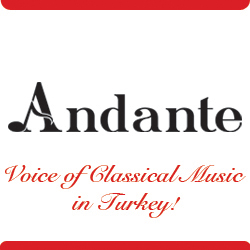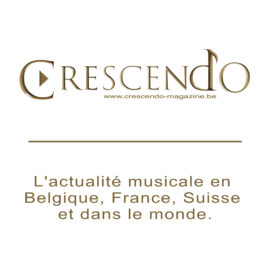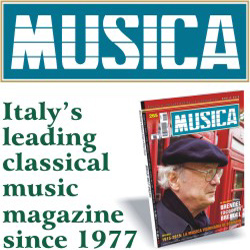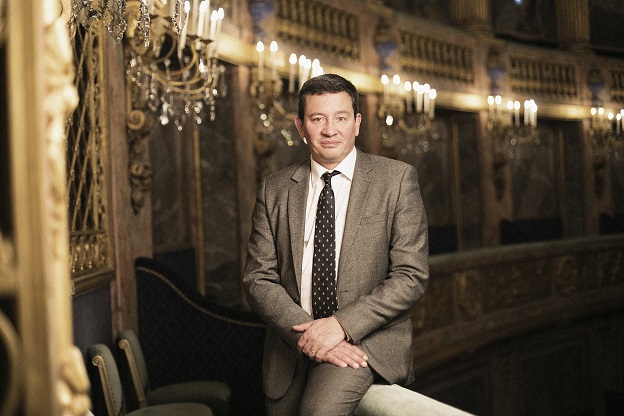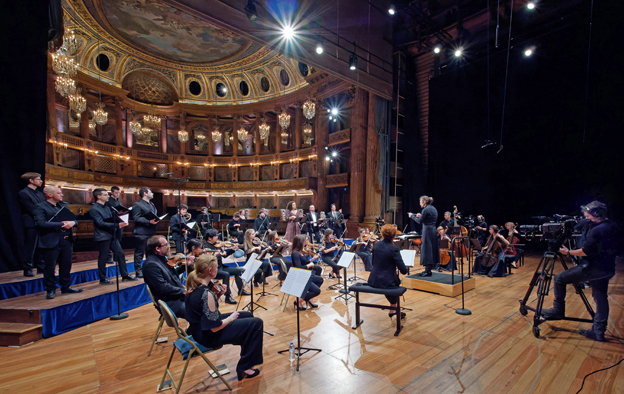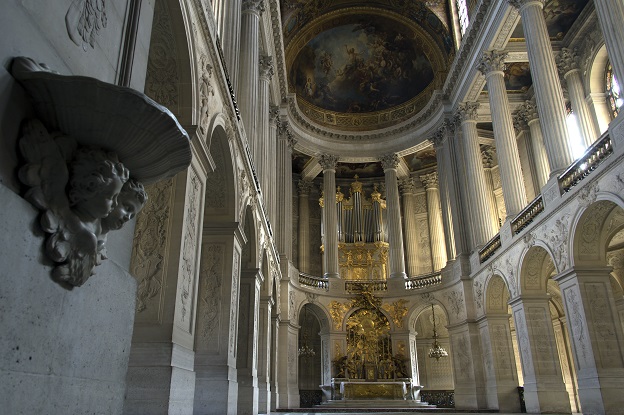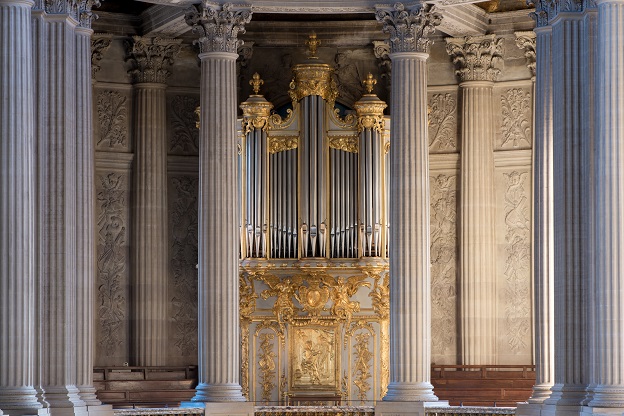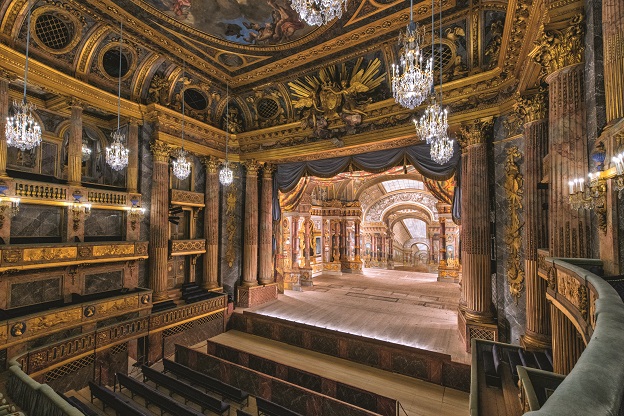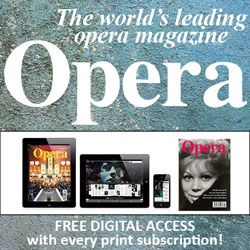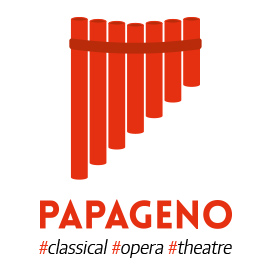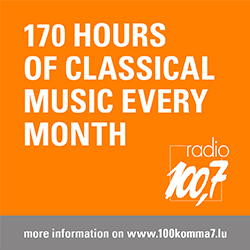Appointed in 2007 as director of Château de Versailles Spectacles, Laurent Brunner created their own record label in 2018. This Lorrain revives in Versailles with the success he had with a festival in Verdun, then with Le Carreau in Forbach, with, always, the search for excellence. In 2022, four years after its launch, Château de Versailles Spectacles became Label of the Year of the International Classical Music Awards (ICMA). Remy Franck met Laurent Brunner for an interview.
Your record label was launched in 2018, so about ten years after the creation of Château de Versailles Spectacles, a private subsidiary of the public institution. How would you assess the situation?
The result is very particular because our activity comprises two years of pandemic. On the one hand, there was a slowdown in sales and on the other hand, the transition to digital, which was reinforced by the absence of concerts with an audience almost everywhere. And, as a consequence, the artists had a lot of time. We took advantage of this to make recordings, especially of more specific programs, which is often the case with French music of the 17th and 18th centuries, and resurrections of rare works such as Lully’s Cadmus et Hermione, Cavalli’s Egisto – which we will be releasing soon – or Francesco Sacrati’s La Finta Pazza. All this music has a historical link with France and is part of this international and European baroque that we cherish. So, after four years we have had a considerable acceleration of production, even if the sales context is not accelerating. And at the same time, there has been a profusion of quality, because there is no lack of quality artists.
The financing worked well until the pandemic ….
Obviously, with the absence of international tourists, our revenues dropped. The Royal Opera does not receive public subsidies for its normal activities. However, for the production of records, France has a system of aid in the form of tax credits, from which we have been able to benefit. But in fact, our specificity is to do both the concert and the recording. This allows a concentration of forces on time and budget. The pandemic has changed this, but fortunately we have been able to increase our sponsorship. And our patrons as well as the Friends of the Royal Opera have helped us a lot during this difficult period.
Did you have to abandon some projects?
We had to abandon our biggest project ever, planned for the year 2021, the year of Napoleon, both on stage and in recording, Spontini’s Fernand Cortez, the first great French opera and the first great personal commission of the Emperor during the Spanish War. It was a specific request from Napoleon for a libretto, and Spontini responded with an opera for which many singers and many musicians are needed. During the pandemic, we were not sure if we could realize everything in accordance with the health regulations. Instead, we staged Giulietta e Romeo by Zingarelli, Napoleon’s favorite opera. Zingarelli’s name has been completely forgotten in France, even though he was commissioned to write Antigone in 1789, which was performed at the Royal Academy of Music. After the premiere of Giulietta e Romeo in Milan, Napoleon heard the work and fell in love with the singer Giuseppina Grassini, making her his mistress. He kept this link with her and with the music for almost two decades, which strongly marks the image of an Emperor who was considered a man of war and a politician, even though he attended a performance almost every night.
Your recordings are sometimes live, sometimes studio. How do you make the choice?
Our recordings are practically always made at the Château de Versailles, with the exception of some chamber music recordings during the pandemic. If there is a concert, the live recording is normally used as a base recording and we make corrections. Or there are several days of recordings that are used for the final version. So, generally, the coherence of the music with the place is guaranteed. With a very large part of our repertoire, the historical aspect is given. But there are also works, such as those by Handel, that have not been performed at Versailles.
Do you outsource the recordings or do you have your own teams to record?
Depending on the repertoire and the type of music, we use several different sound engineers who respond to the specificities of the repertoire and also to the affinities of the artists. We have six teams that we work with on a regular basis, which allows us to sometimes do two productions with recording and post-production at the same time. I think the location plays a big part in this. When you make a recording at the Opéra Royal de Versailles, where everything is made of wood, or at the Chapelle Royale, where most of the music of Louis XIV and Louis VX, Mondonville, Lully or Rameau, was played, this is the place to do it.
We find on your label big names who are often under contract with other labels. Have you ever had problems hiring them?
I think that exclusivity is not really important anymore. By selling records you don’t make a profit, at best you make up for the deficits. In any case, generally speaking, exclusivity does not affect our work. And if there is a problem, we can choose another singer. This also allows us to give work to the youngest singers who often become known very quickly thanks to the recording. I insist on the notion of work. The pandemic has shown that when you can no longer work, if you don’t practice, you lose. And the more you practice, the more you win. And the younger you are, the more you need to work.
Among the conductors hired, we see the names of Gardiner, Koopman or Goebel. Do artists of such renown easily fit into your projects?
The artists you have just mentioned have several elements in common: a certain age which means that today they have an important recognition after a long career on stage and on the record. In addition, they no longer belong to a record company. They are probably no longer profitable enough for a record company to accept their requests, which are often to conduct works with a large ensemble or rarer works. Secondly, because they have already produced so many records, a record company would rather reissue a 25-year-old recording at mid-price than produce a new one. And, thirdly, they are always very happy to be offered new opportunities, either with works they want to conduct or with works that we offer them. Versailles is not unknown or insignificant. And when we say to Gardiner: Come and conduct your version of Benvenuto Cellini in Versailles, in the same setting as Berlioz did in 1838, we touch something. It’s like we told him to conduct Monteverdi’s Vespers a few years ago in the Royal Chapel that is very spatialized and therefore extremely well suited to the work. We have made similar proposals to other artists. We have places that are originally meaningful and it is interesting for an artist to play certain works in the places they evoke.
Do you intend to keep certain artists such as Reinhard Goebel, to name but one?
I don’t think it’s a matter of keeping Goebel, Gardiner, Koopman or others, it’s a matter of seeing if they have interesting projects for us or if we have projects that resonate with their work or their temperament. Right now, I want to do Les Troyens with Gardiner, not in a stage version, because I don’t have the budget, but I can imagine a semi-staged concert version. It’s a work that foreigners know so much better than the French because in France, Berlioz perhaps didn’t get the recognition he deserved – perhaps he also wanted to exclude himself from the game. With Ton Koopman, I would like him to play French music on the organ of the Chapelle Royale, because he is an incredible organist, and the French repertoire suits him very well. He wants to play Clérambault, a composer that he would not be able to play on any organ in Europe as he can in Versailles. I have other projects that for some artists would not make sense in their country and that make sense here. There are so many works that are perfectly adapted to our places. We could even think of performing Richard Strauss’ Bourgeois Gentilhomme, which certainly has a link with Versailles. But our main repertoire will remain that of the 17th and 18th centuries. When you come to Versailles or when you listen to a Château de Versailles Spectacles recording, you think of Louis Quatorze or Marie-Antoinette. It is therefore logical that you find the music of that period. But if we go much further, if you are Australian, Chinese or American, Vivaldi must be about the same as Marie Antoinette or Louis XIV. It’s an era. And that era interests me in itself. Besides, it’s a time when the musicians themselves traveled a lot. In Germany, a lot of French music was played and in England a lot of Italian music. So, to compartmentalize, to create frontiers for this period makes no sense. At the same time, this is what will make our specificity. So I am dealing with a period that goes from the end of the 16th century to the French Revolution, and I am adding Berlioz, in whom I really believe, because the years of the Empire were very strong at Versailles, because Napoleon was very present and wanted this castle to come back to life differently. Berlioz came there to give the only great concert of the 19th century. So we have the setting in which he played. It is exceptional!
You have removed all your recordings from the streaming platforms. Why did you do that?
It’s basically an economic question. Today, the business model in the music world is based on pop, which doesn’t work the same way as classical. Pop music often has few performers and many sales. Classical music is often a lot of performers and a lot less listeners, except for a few rare events like the Vienna New Year’s Concert or the recordings of a few world-famous musicians. And there are less than ten of them. Unfortunately, the payment system is the same. So you buy a subscription for a streaming platform and for 10 euros a month on average you listen to whatever you want. But the distribution key for this money does not provide for your ten euros to be divided according to your own listening rates. If you listen to half Couperin and half Rolling Stones, the ten euros will not be divided fifty, fifty. No, it will be divided according to the key of all the listening. If the Rolling Stones take 20%, all the pop 30%, the 80s and 90s variety around 50%, there is one cent left for Couperin. On the other hand, if you have the choice to buy a CD worth, say, 15 euros, or to listen for 10 euros a month to whatever you want, you go on this platform which hardly pays the phonographic producer of the classic at all. And even if the quantity would increase, we are in cents instead of euros, and there I have nothing to gain. So I decided to withdraw the whole package, including Qobuz, but on March 1st we will re-enter Qobuz individually, a platform that works differently and where the remuneration is more substantial. Qobuz allows us to have a visibility on the digital, because there are people who do not have other technical means, and at the same time to have a better remuneration. And moreover, we have created our own platform where the public has access, through a paying system of course, to both video and audio. It’s cheaper than the physical CD, but you have the same sound in digital. With a hundred titles, it is far from the choice offered by the big platforms, but it offers a large part of what is played at the Palace of Versailles, and the world public can therefore virtually go to Versailles and see operas and listen to music.
By limiting yourself to your own online platform and to Qobuz, I wonder if this is a handicap to the international reputation of the label?
With the question of languages and the restrictions of the Internet, we are limited anyway. So we have to be open to a world that is very changing and that changes much faster than we expect.
What does the ICMA Label of the Year award mean to you?
First of all, it’s a mark of quality. It’s like a label, a seal of quality that you put on a project, and it means that it has been distinguished. It has a very French meaning. We are a country of medals. And that’s what medals are for. It’s a way of highlighting and it means that what we do is good. The second thing, of course, is the honor, especially when you have, as we do, a hundred recordings and only four years of practice in a very difficult context and on a particularly tight repertoire that is not very well known by the public. To have such recognition is a very strong sign, it says that our work resonates beyond us and beyond the public that comes to hear concerts at the Château de Versailles. And then, last but not least, it is a commercial element. A visitor to an Internet site or a buyer in a store will learn by this means that there is something good there. So, he has confidence. It is the traditional role of the press to say to its readers: be interested in this project, it has a great value. Maybe it will help us to sell, even if our productions are always loss-making. The money invested will never come back. But I believe that, as Napoleon said when he reformed all the French theaters, « In opera, you have to throw money out the window so that it comes in the door. »


